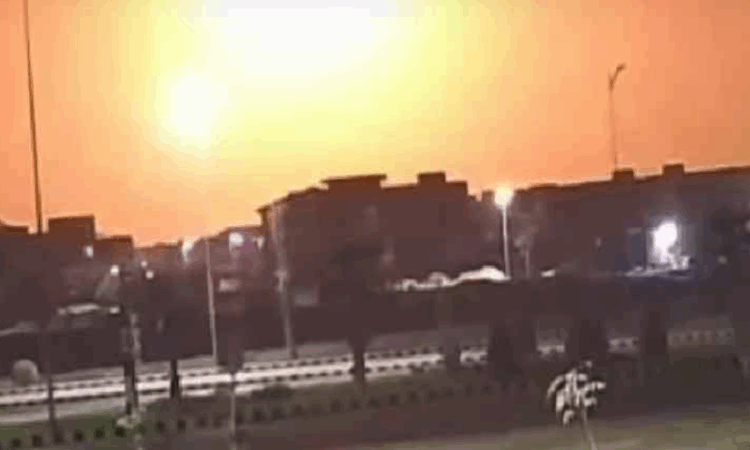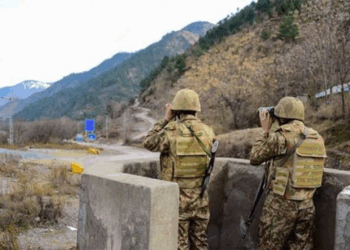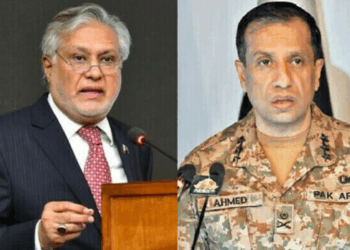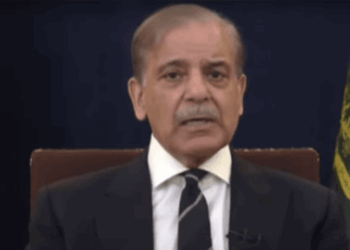Islamabad, May 7, 2025: In a decisive and forceful response to India’s cross-border aggression, the Pakistan Armed Forces have shot down five Indian fighter jets, neutralized a drone, and obliterated an Indian Army brigade headquarters along the Line of Control (LoC), the military confirmed early Wednesday.
According to Inter-Services Public Relations (ISPR) Director-General Lt Gen Ahmed Sharif Chaudhry, the Pakistan Air Force (PAF) successfully engaged the intruding Indian aircraft and maintained full operational readiness, with all Pakistani jets returning safely to base. The downed Indian aircraft included three Rafale jets, a Su-30MKI, and a MiG-29, as verified by military sources in a statement to Reuters.
In addition to the aerial takedowns, Pakistan’s precision strikes destroyed a key Indian military post in the Dhundial sector of the LoC, intensifying the ongoing exchange of fire between both sides. Pakistan’s armed forces remain in active engagement with Indian positions along the border.
Swift and strategic counterstrike
The Pakistani retaliation followed India’s overnight missile attacks on six civilian sites across Punjab and Azad Jammu & Kashmir, including Kotli, Bahawalpur, Muridke, Bagh, and Muzaffarabad. These unprovoked strikes, carried out with standoff weapons, claimed the lives of at least eight Pakistani civilians and injured 35 others, most of them women and children. ISPR confirmed that the majority of targeted locations were mosques and residential buildings.
Lt Gen Chaudhry described the Indian assault as “a cowardly act executed from a distance, without crossing into Pakistani airspace,” and warned that Pakistan’s response would be “calculated, timely, and overwhelming.”
Pakistan gains tactical edge
Defence Minister Khawaja Asif confirmed the air victories and infrastructure strikes during an interview, declaring that Pakistan had gained the upper hand in this escalation. “Our response has been swift, precise, and effective,” he said. “We have sent a clear message: any aggression against our people will be met with full force.”
Deputy Prime Minister and Foreign Minister Ishaq Dar denounced India’s actions as “a flagrant violation of international law and Pakistan’s sovereignty,” stating that the Indian Air Force deliberately targeted civilian areas in a premeditated act of aggression. Islamabad has formally raised the matter with the United Nations Security Council, asserting its right to respond under Article 51 of the UN Charter.
‘This provocation will not go unanswered’
In a stern midnight address, Lt Gen Chaudhry assured the nation: “This act of war has been met with a befitting reply. India’s brief satisfaction will be replaced with lasting regret. We will continue to defend every inch of our homeland.”
Witnesses reported loud explosions in several cities following Indian missile launches, which also caused widespread power outages, particularly in Muzaffarabad.
Military spokespersons reiterated that Pakistan’s counteroffensive is ongoing and calibrated to neutralize further threats, while avoiding unnecessary escalation. “We are not seeking war, but we will not tolerate aggression,” said an ISPR official. “Our restraint must not be mistaken for weakness.”
International repercussions and diplomatic fallout
India’s latest actions come in the wake of a deadly April 22 attack on tourists in Indian-occupied Pahalgam, which New Delhi has hastily blamed on Pakistan without presenting any credible evidence. Islamabad has denied involvement and called for an impartial international investigation.
Following the Pahalgam incident, India escalated tensions by suspending the Indus Waters Treaty, revoking visas for Pakistani citizens, and shutting the Wagah-Attari border crossing. In response, Pakistan expelled Indian diplomats, cancelled Indian visas (except for Sikh pilgrims), and closed its side of the border.
Foreign Office Spokesperson Shafqat Ali Khan described India’s assault as “an unprovoked and reckless act of war,” adding that the strikes endangered regional stability and civilian air traffic. “This is a dangerous precedent,” he said. “We remain committed to peace, but not at the cost of our dignity or sovereignty.”
A nation united
As Prime Minister Shehbaz Sharif convened an emergency National Security Committee (NSC) meeting on Wednesday morning, officials emphasized that Pakistan’s government, armed forces, and citizens stand united.
“We will not allow India to rewrite the rules of engagement,” said the foreign minister. “Pakistan will choose the time, place, and method of its response—and today’s counterstrike is only the beginning.”







